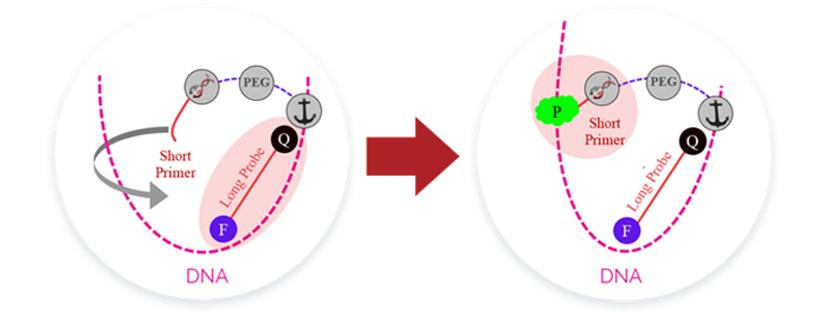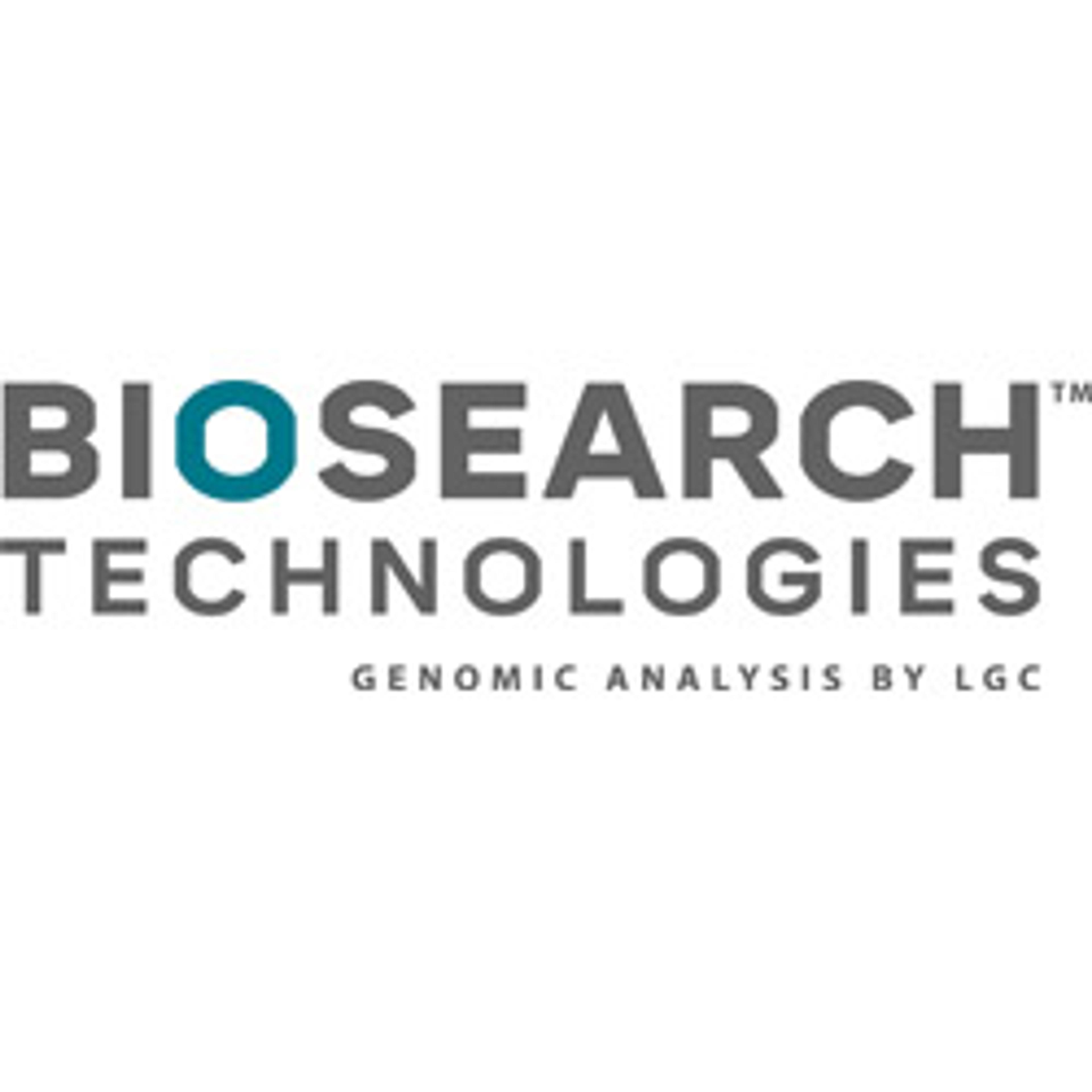Transforming molecular diagnostics: Unique primer technology dramatically increases the accuracy and specificity of PCR tests
More affordable diagnostic tests for multiple diseases could soon be available thanks to innovative Co-Primers technology
4 Apr 2023

Polymerase chain reaction (PCR) is an effective and important molecular diagnostic technique, however, it is not without its limitations. Traditional real-time PCR can be time-consuming, expensive and it can give false or inaccurate results from contamination and through the formation of primer-dimers, where two primer molecules hybridize and are then amplified by DNA polymerase, competing for reagents.
To address these issues and help bring more accurate PCR to the masses, Co-Diagnostics, Inc. developed its unique Co-Primers™ technology. Co-Primers are designed in a way that dramatically reduces errors in amplification and increases the accuracy and specificity of PCR testing, making it a transformative technology for multiplexed assays. In this SelectScience® interview, we speak with Dr. Kenneth Bramwell, Deputy Chief Science Officer at Co-Diagnostics, to learn more about this exciting emerging technology, the partnership that drove its development and production, and the impact it could have across multiple areas of molecular biology.
A dramatic reduction in PCR amplification errors
PCR is the gold standard molecular diagnostic testing technique and has a wide range of applications, from clinical diagnostics to agricultural biotechnology. Under the right circumstances, it is extremely sensitive, specific and accurate. However, the traditional primers used in PCR have inherent limitations – they must be both long enough to bind efficiently to unique sequences and short enough to avoid mismatched binding partners. Bramwell explains that this is a delicate balance and often primers bind to and amplify unintended products, resulting in primer dimers. “These errors dramatically reduce the accuracy of molecular diagnostic PCR tests and can lead to false results and inaccurate diagnoses in healthcare, which can be detrimental to patient health. Countries with low resources are especially affected by the challenges associated with PCR testing and often cannot afford to carry out these types of tests,” Bramwell adds.
Co-Primers is a patented technology developed by Co-Diagnostics that aims to provide highly accurate and reliable PCR testing accessible to everyone globally. The technology uses patented hybrid molecules with multiple target recognition domains that are separated by non-reactive spacer chemistry. This allows them to incorporate more unique sequences to improve binding against the intended target, whilst retaining a short and specific reactive primer domain that limits the formation of primer dimers. The Co-Dx Co-Primers Design Software is also a critical part of the Co-Primer technology. It screens thousands of possible locations on a gene which takes the guesswork out of PCR test design and allows designers to quickly and efficiently create highly specific primers and probes that can be optimized to run on many PCR diagnostic platforms. These unique features make the Co-Primer technology highly specific and accurate, improving the ability to identify the presence of viruses and pathogens, cancer, or other indications in agricultural applications.

An essential partnership in the development of Co-Primers
Dr. Brent Satterfield, Co-founder and former Chief Scientific Officer at Co-Diagnostics, was instrumental in the initial development of the Co-Primer technology, which he invented to address the need for high-quality and affordable disease diagnostics.
Bramwell comments: “He discovered that splitting traditional primers into pairs of cooperatively binding motifs could make PCR reactions much more robust and reliable and eliminate primer dimers.”
However, the synthesis of these new Co-Primer molecules was challenging because it was a very unusual and novel process, requiring a high level of expertise in synthetic biology. “LGC Biosearch Technologies was an early partner that was willing to accept this challenge and provide the expertise necessary to develop and master the chemical synthesis and the purification of Co-Primers on an industrial scale. They have been critical in helping bring this innovative new technology to fruition. We really couldn’t have done it without them,” Bramwell says.
Realizing the potential of mega multiplexing
The improved specificity, accuracy, and ability to reduce primer dimers make Co-Primers a transformative technology for disease diagnostics. Co-Primers can identify and distinguish between pathogens with great precision and are sensitive enough to detect a single virus in a sample. Improving the accuracy of disease diagnostics enables patients to get more timely access to potentially life-saving treatment.
“Crucially, the high level of specificity with Co-Primers also provides improved multiplexing capabilities, which is extremely beneficial in clinical diagnostics. With the Co-Primer technology, we can carry out multiplexes within a singular molecular diagnostic test to simultaneously identify multiple diseases that would otherwise have to be tested for individually. This enables us to utilize singular samples and significantly increase our throughput, saving a significant amount of time and money. Plus, a reduction in primer dimers and shorter primer development time further cut the overhead costs of PCR testing, helping make infectious disease diagnostics affordable across the globe,” Bramwell explains.
Bramwell adds, “the applications of the Co-Primer technology stretch beyond healthcare and clinical diagnostics – it can also benefit the food and agricultural industries. Co-Primers can improve our ability to detect beneficial single-nucleotide polymorphisms (SNPs) in crops, such as adaptations that can increase production rates or increase resistance to diseases. Similarly to detecting pathogens in humans, Co-Primers can also detect harmful bacteria, such as E. coli, in food.”
Inexpensive PCR testing made available to the community
While the Co-Primers technology can benefit PCR testing in a laboratory setting, Co-Diagnostics has also developed its Co-Dx PCR Home Testing Platform* that utilizes this technology to make affordable diagnostic testing available within the community, beyond a clinical setting. Bramwell states, “our goal was to develop an inexpensive PCR device that takes expedient point-of-need infectious disease diagnostics out of the lab and into your home, school, or office. We anticipate the instrument will cost around $300 USD and will offer gold-standard PCR testing with a sample-to-result turnaround in 30 minutes. While development was driven by the COVID-19 pandemic, the vision is expansive. The Co-Dx PCR Home Testing Platform is controlled via a smartphone app. Unlike current antigen-based at-home testing options, this platform builds a cloud-based database of anonymized test results in real-time. This could offer valuable actionable data to support current and future infectious disease crises.”
The home testing platform has begun clinical trials phase of development. Co-Diagnostics is using a Co-Primers COVID-19 test to assess the device along with additional Co-Primers-based assays currently under development and will seek regulatory approval from relevant governing bodies in the US and Europe. If the device is a success, it could help prevent the spread of infectious diseases, improve patient health outcomes, and make high-quality PCR diagnostics affordable and accessible to communities all around the world.
Moving forward, Bramwell explains that Co-Diagnostics plan to continue to develop new multiplex panels, including a multiplex upper respiratory panel and STI panel, for both the central laboratory product line and for future product development on the PCR home testing platform.
*The Co-Dx PCR Home Testing Platform has not been reviewed by the U.S. Food and Drug Administration and is not available for sale.

